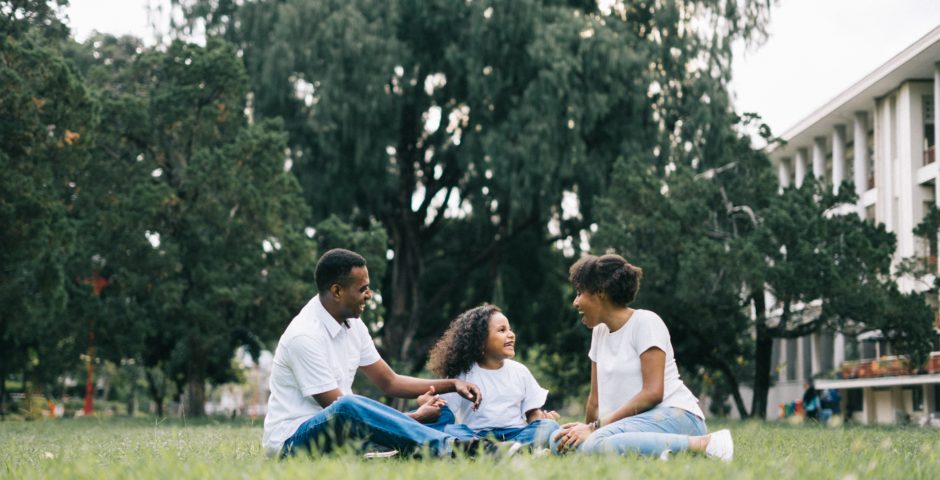Our (Proposed) Summer on the Underground Railroad
A new guy named Ethan* started at my job a few months ago. Ethan is nothing short of a curiosity. I’ve never met anyone like him. You see, Ethan is a bi-racial redneck.
He has this gawd awful Southern twang that makes my ears burn, and his mannerisms comprise of tics I have only witnessed from a distance. I’m not friends with many rednecks… in fact I’m not friends with any rednecks. What would we have in common? I don’t drink beer and I don’t like NASCAR. Needless to say, working with Ethan has been nothing short of interesting.
One day, I stopped Ethan in break room and asked him what his deal was.
“Is that accent real? Where are you from?”
“Albany,” he replied.
I don’t know anything about Albany, except that it’s south. I asked him about his town and how he’d grown up. He told me that it was still pretty much racially segregated.
“White people hate Black people and Black people hate them right back.”
“Really?”
“Oh we all get along when it’s time to spend money,” he said matter-of-factly. “A white guy isn’t going to turn a Black out if he’s in his store to buy something. But don’t come to my church on Sunday and I won’t come to yours. And don’t try to show up at any of my social functions, or there’ll be hell to pay!”
He laughed sardonically. Before I could stop myself, I pointed out the obvious – and evidently, very painful.
“But Ethan… you’re bi-racial. What was that like growing up for you?”
His face clouded over.
“Yes, I am. But I grew up around White people my whole life.”
I didn’t pry further. I asked him what it was like down there and told him I’d been thinking about taking my kids on a historical tour next year. Did they still have slave shacks and plantation houses?
“Oh sure!” he guffawed. “They got all that sh*t. I can give you a list of places if you want. I can even get someone to call you and your kids out your name, if you want.”
When I balked, he told me he was just kidding. Then he went into his family history and their slave connections.
“We own 300 acres of land. Originally owned by some Northerners though.” He almost spat when he said ‘Northerners’. “Anyway, one afternoon we’re out clearing the land and we kept comin’ up on these div’its in the ground. We figure the land just caved in, y’know? So we dig one of ‘em up one day and we find these bones. Slave bones.”
“What? For real!” I was intrigued and appalled all at once.
“Oh yeah. We had some historian come check it out. Basically, that’s how they buried slaves in them days. The more you mean you the master – like if you raised him or something – the better he might treat you. But if you ain’t mean sh*t to him, he’d put a bullet in your head and bury you in the ground.”
“Wow…” I was still trying to process, but Ethan was still talking.
“Oh yeah. We had all size holes. Little kids, adults… if you got sick, or couldn’t work or if they couldn’t sell you, they’d just kill a slave off. They had to feed and clothe them. Can’t take up too much room on the plantation if you’re no good.”
Well dag.
As many in the MOM Squad know, I have been trying to devise ways to tell my kids about their American history and their place in it. And since my kids are Black, that is a pretty tall order. Their heritage includes European, Jewish (on Nadjah’s side), Native American and of course, African. My goal –and challenge- has been to explain and present history without all the malice that was imposed upon me as a child. I was essentially given a list of reasons to hate White folk, and left to struggle with the very real anger I suffered with for decades. I don’t want that for any of my kids.
That said, it’s still important for them to understand what their ancestors suffered, and what their contemporaries still suffer as a result of social/economic/political discrimination today.
It’s important for them to understand why I drill them so harshly about completing homework assignments and getting good grades, because there was once a time that they could be killed for writing a simple letter.
It’s necessary for them to comprehend why we do the things we do as a people. American Slavery and its little brother Jim Crow affected every facet of Black American life, even down to the nuances of our appearance. That certain ones of us were used as breeding stock tells why an NFL linebacker possesses the girth and power that he does. That we were apportioned the least choice portions of pork and its entrails for meat tells why folks eat pig feet and chit’lins today. When we drive by run down projects populated by brown people that look like us, they have to understand that those people didn’t CHOOSE to live there… They didn’t build those projects. A rich White man did, and that’s usually what those dwelling there could afford to pay in rent. And when other races ask idiotic questions like “Why can’t you Blacks just get it together”, they need to be armed with an answer. How are we supposed to magically ‘get it together’ when the majority has a 400 year head start on us? When we’re JUST rediscovering what it feels like to have an intact family after having husbands and siblings sold from each other, or unlawfully arrested and imprisoned whole sale, or refused opportunities that would allow a family of color to exist on a livable wage, and then vilified when a Black mother has to turn to welfare to feed her kids? Did we create this economic system and cycle of poverty we’re trapped in? No! But we have had to navigate it for decades, however.
Remember when the Great Recession first hit? Remember when virtually EVERY DAY there was a news story about some IT Developer or banker who killed himself and his whole family because he had lost his job and seen no way out? The nation was shocked. Imagine living under that kind of economic duress for centuries, and then come back and ask me why we just can’t “get it together”.
My kids need to know all these things – and much, much more. That America has a promise that it has yet to deliver on and a dark past that it MUST atone for. If this nation is one “under God”, they must repent and atone for the sin of man stealing (Exodus 21:16) or face the wrath of God. It’s really, very simple.
I told the girls that we will be going on the Underground Railroad next summer. They gasped and squealed.
“Really?!”
“Can we get out and see stuff?”
“Will we go inside some of the houses?”
 I was shocked by their enthusiasm – and very pleased. It means that their teachers and I have been doing something right. I told them we would go to the Deep South, make our way North through the Carolinas and end in Philadelphia to see the Liberty Bell. (Runaway slaves usually weren’t out of danger until they got to New York and/or Canada, but I’m NOT driving that far.) That said, I know I HAVE to temper this journey with common sense and delicacy, particularly with Aya. She’s extremely empathic.
I was shocked by their enthusiasm – and very pleased. It means that their teachers and I have been doing something right. I told them we would go to the Deep South, make our way North through the Carolinas and end in Philadelphia to see the Liberty Bell. (Runaway slaves usually weren’t out of danger until they got to New York and/or Canada, but I’m NOT driving that far.) That said, I know I HAVE to temper this journey with common sense and delicacy, particularly with Aya. She’s extremely empathic.
While reading the story of Matthew Henson, the first Black man to explore the North Pole, she paused in the middle of reading a passage about the discrimination Matt Henson faced in the country of his birth. No one would give him a job for a long time because he had skin that looked like hers.
“White people were crazy in those days!” she blurted. She then ran off to tell her sister what she’d read.
Her statement filled me with dread and hope. Yes, White people were “crazy”. The world operated under a system that robbed every one of their humanity – victims and perpetrators alike, which did and still do come in all shades. But, as she pointed, that was in “those days”, which gives me hope that she sees the world she lives in very differently than the one Matt Henson, George Washington Carver, William Wilberforce and Rosa Parks lived in.
Every race has had its struggle with oppression. Look at what the Japanese did to the citizens of mainland China. Or the horrible atrocities committed by invading Europeans on the aborigines of Australia. More recently, what horrors Hitler meted out on Jews, the mentally impaired and homosexuals. Do other ethnicities struggle in the same way Blacks do to tell their past? Are they under the same pressure we are to “get over it”? Should we all be content to forget?




